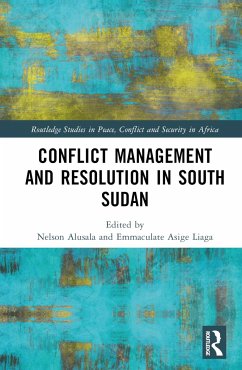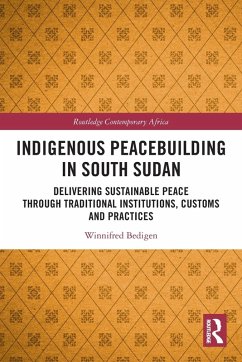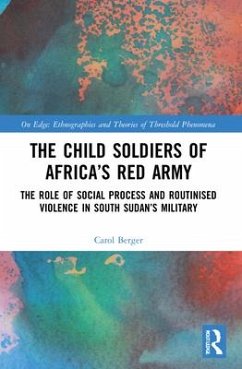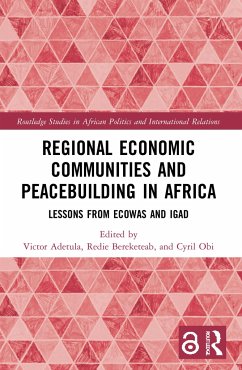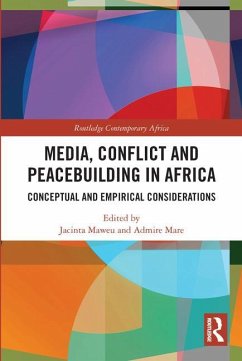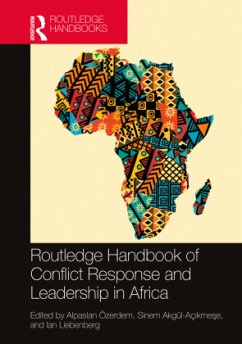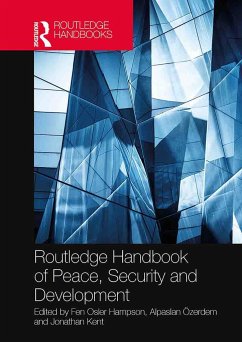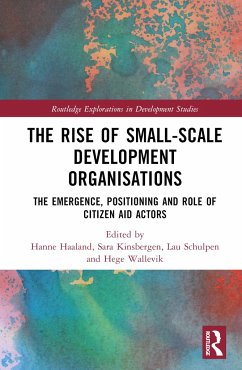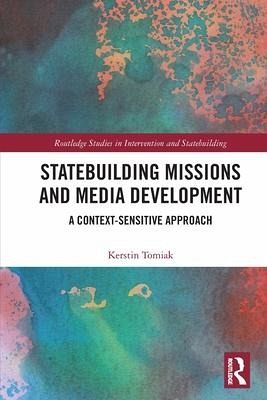
Statebuilding Missions and Media Development
A Context-Sensitive Approach
Versandkostenfrei!
Versandfertig in 6-10 Tagen
45,99 €
inkl. MwSt.
Weitere Ausgaben:

PAYBACK Punkte
23 °P sammeln!
This book examines the effects of media interventions in the global South, and argues for a more adaptive and context-sensitive media development.The work investigates media development as part of statebuilding and the effects that Western-led media has in, and on, a newly built state. Drawing on extensive fieldwork, including interviews, observations and social surveys, it analyses the effect media interventions has on global South countries, from the population's point of view. The findings show that in practice media development can be alien to the societies in which a free press is impleme...
This book examines the effects of media interventions in the global South, and argues for a more adaptive and context-sensitive media development.
The work investigates media development as part of statebuilding and the effects that Western-led media has in, and on, a newly built state. Drawing on extensive fieldwork, including interviews, observations and social surveys, it analyses the effect media interventions has on global South countries, from the population's point of view. The findings show that in practice media development can be alien to the societies in which a free press is implemented, which can lead to unintended and negative consequences for social relations in a country. While the book uses South Sudan as a case study, it also presents different perspectives and shows that local views on the media are different from those of Western experts and policymakers. Therefore, the book advocates taking local views seriously and an adaptive media development that is sensitive to the context in which it is set up.
This book will be of much interest to students of statebuilding, media studies, development studies and international relations in general.
The work investigates media development as part of statebuilding and the effects that Western-led media has in, and on, a newly built state. Drawing on extensive fieldwork, including interviews, observations and social surveys, it analyses the effect media interventions has on global South countries, from the population's point of view. The findings show that in practice media development can be alien to the societies in which a free press is implemented, which can lead to unintended and negative consequences for social relations in a country. While the book uses South Sudan as a case study, it also presents different perspectives and shows that local views on the media are different from those of Western experts and policymakers. Therefore, the book advocates taking local views seriously and an adaptive media development that is sensitive to the context in which it is set up.
This book will be of much interest to students of statebuilding, media studies, development studies and international relations in general.





